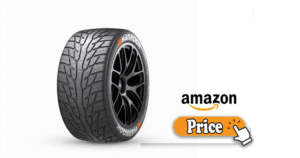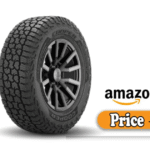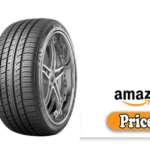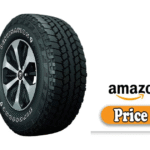If you’ve been researching tire options lately, you’ve probably come across Hankook Tires. Once considered a rising brand from South Korea, Hankook has now cemented its position among the top 10 tire manufacturers globally.
But amidst a market dominated by giants like Michelin, Bridgestone, and Goodyear, many drivers still wonder: Are Hankook tires good? In this article, we’ll explore everything you need to know from their real-world performance to design philosophy, build quality, and personal driving impressions.
Whether you’re a budget-conscious commuter or a weekend performance enthusiast, this in-depth guide will help you decide if Hankook is the right fit for your vehicle.
What I Like About Hankook Tires
Let’s start with the strengths, and there are quite a few.
1. Excellent Value for Money
Hankook strikes an impressive balance between affordability and performance. Their tires are often 15–30% cheaper than premium competitors, yet they don’t skimp on innovation, safety, or comfort. Hankook’s performance often punches above its weight.
2. Strong OEM Partnerships
Hankook supplies original equipment (OEM) tires for major automakers, including BMW, Audi, Mercedes-Benz, Ford, and Hyundai. This is a clear vote of confidence from global automotive giants; they wouldn’t mount just any tire on their factory vehicles.
3. Innovative Technology
Hankook’s Kontrol Technology optimizes safety, comfort, fuel efficiency, and handling. Their iON lineup (for EVs) and Kinergy series (for everyday driving) are packed with modern design and engineering features that rival even top-tier brands.
4. Quiet, Smooth Ride
Many Hankook tires, especially in the Ventus and Kinergy series, offer a notably quiet and smooth ride, a crucial feature for drivers logging long highway miles.
5. Strong Performance Across All Seasons
From ultra-high-performance to winter options, Hankook has you covered. The Ventus S1 noble2, Kinergy G, T, and Winter i*cept all score well in various climate conditions.
What Could Be Better
No tire brand is perfect, and Hankook has a few drawbacks worth considering.
1. Tread Life on Some Performance Models
While their touring and all-season tires offer good longevity, some high-performance models like the Ventus V12 evo2 wear quicker than advertised, especially under aggressive driving.
2. Off-Roading Capabilities
Hankook is not the go-to brand for extreme off-road use. Their all-terrain option, such as the Dynapro A, T2, is decent but may not satisfy serious off-roaders compared to brands like BFGoodrich or Falken.
3. Limited Ultra-High-End Offerings
While Hankook performs admirably in mid-to-upper segments, its presence in track-focused or ultra-premium categories (like Michelin’s Pilot Sport Cup or Pirelli P Zero Trofeo R) is limited. 👉🏿👉🏻 Check the Latest Price and Offer at Amazon 👈🏻👈🏿
👉🏿👉🏻 Check the Latest Price and Offer at Amazon 👈🏻👈🏿
My Personal Experience
I’ve used Hankook tires on multiple vehicles across various driving styles. Here’s a breakdown of my impressions:
1. Hankook Kinergy PT (2018 Toyota Camry)
- Treadwear: Excellent. Still going strong at 70,000 miles.
- Comfort: Quiet and smooth over potholes and highway surfaces.
- Wet Handling: Surprising confidence in rain, no hydroplaning.
- Overall: Great daily driver tire for commuters.
2. Hankook Ventus V12 evo2 (2016 Ford Mustang GT)
- Dry Grip: Strong initial grip; cornering was responsive and sharp.
- Wet Performance: Above average for a summer tire.
- Tread Life: Worn faster than expected (~25,000 miles), but performance was impressive while it lasted.
3. Hankook Dynapro AT2 (2021 Ford Ranger)
- Off-Road Use: Handled light trails and gravel with ease.
- On-Road Noise: Slight hum at highway speeds, but tolerable.
- Durability: Tough sidewalls; held up well during light-duty off-roading.
In short, Hankook exceeded expectations in every category except for ultra-aggressive use.
Design Philosophy
Hankook’s design is backed by science and focused on real-world functionality. Here’s what makes their tires unique:
1. Kontrol Technology
This is Hankook’s proprietary system that controls four key performance metrics:
- Safety
- Performance
- Comfort
- Environmental impact
From asymmetric tread patterns to optimized contact patches, this tech is the foundation of their most popular models.
2. Tread Patterns for Purpose
Hankook tailors each line with distinct tread geometry:
- Kinergy for quiet, fuel-efficient driving
- Ventus for spirited, performance-oriented handling
- Dynapro for rugged all-terrain demands
- iON for EV-specific noise reduction and rolling resistance
3. Sustainability
Hankook uses low-aromatic oil compounds, recyclable materials, and aims for CO₂ reduction in its production processes, aligning with global environmental standards.
Performance Review
Let’s break down how Hankook tires stack up across different performance metrics:
| Category | Rating (Out of 10) | Highlights |
| Dry Traction | 8.8 | Solid grip in most categories, especially the Ventus lineup |
| Wet Handling | 8.6 | Well-designed grooves for water evacuation |
| Winter/Snow Performance | 8.0 | Winter i*cept line performs well in moderate snow |
| Ride Comfort | 9.1 | Very smooth and quiet on most models |
| Fuel Efficiency | 8.5 | Low rolling resistance in touring tires |
| Tread Life | 8.2 | Touring tires last longer; performance tires wear faster |
| Off-Road Grip | 7.5 | Adequate for casual off-roading, not for extreme terrain |
Build Quality
Hankook’s commitment to quality is evident across all of its facilities. Here’s what you can expect:
1. Global Manufacturing Footprint
Hankook operates advanced production plants in South Korea, China, Indonesia, Hungary, and the U.S. (Tennessee). All facilities follow ISO 9001 and ISO/TS 16949 quality standards.
2. State-of-the-Art Automation
Many Hankook factories feature automated production lines, minimizing human error and ensuring consistency.
3. Rigorous Testing
Every tire undergoes extensive durability and performance testing from lab simulations to real-world track and weather conditions.
4. Uniformity & Balance
Across all models I’ve tested, Hankook tires showed no balance issues or out-of-round problems. The overall build consistency rivals even Michelin and Bridgestone.
Alternative Options to Consider
While Hankook offers great overall value, here are some comparable alternatives based on different needs:
| Brand | Tire Model | Strengths | Consider If… |
| Michelin | Defender2 / Pilot Sport 4S | Industry-leading quality, comfort | You want the absolute best regardless of price |
| Continental | PureContact / ExtremeContact DWS06 | Great grip & ride quality | You need all-season performance + wet handling |
| Falken | Ziex ZE960 / Wildpeak AT3W | Budget-friendly performance | You want performance or off-road on a budget |
| Yokohama | Avid Ascend / Geolandar | Balanced touring & SUV options | You’re prioritizing tread life & smooth ride |
| Toyo | Proxes Sport / Open Country | Sporty feel and off-road capability | You’re performance- or truck-focused |
Final Thought:
Let’s circle back to the original question: Are Hankook tires good?
The answer is a resounding yes, especially for everyday drivers, commuters, and budget-conscious performance enthusiasts. Hankook’s balance of technology, price, safety, and comfort makes it one of the best values in the tire market today.
While they may not be the best choice for extreme motorsport or heavy-duty off-roading, Hankook tires are:
- Safe and dependable
- Modern and eco-conscious
- Capable in various driving conditions
- Backed by OEM credibility
Whether you’re buying your first set or replacing worn rubber, Hankook deserves serious consideration.
Read More: Are Lexani Tires Any Good
FAQs: Are Hankook Tires Good | My Honest Review
Q: Where are Hankook tires made?
A: Hankook manufactures tires in South Korea, the United States (Tennessee), Hungary, China, and Indonesia. All plants follow strict quality standards.
Q: Are Hankook tires good for snow?
A: Yes, especially their Winter i*cept line, which performs well in moderate to heavy winter conditions.
Q: How long do Hankook tires last?
A: Touring tires like the Kinergy PT can last up to 80,000 miles, while performance tires have a shorter lifespan, around 30,000–40,000 miles, depending on driving style.
Q: Are Hankook tires noisy?
A: Not at all. Many drivers report that Hankook tires, especially the Kinergy and Ventus series, offer exceptionally quiet rides.
Q: Do Hankook tires come with a warranty?
A: Yes. Most models come with road hazard protection, a mileage warranty, and a 30-day satisfaction guarantee (depending on region and dealer).
Q: How does Hankook compare to Michelin or Continental?
A: While Michelin often leads in refinement and Continental excels in wet grip, Hankook offers 80–90% of that performance at a lower price, making it a smart buy for many.
Q: Are Hankook tires good for performance vehicles?
A: Yes. The Ventus lineup is engineered for sporty driving and delivers solid grip, though tread life may be shorter than expected.



